Frequently Asked Questions of the Adoption Law Firm
Click any question to see our response. Of course, we invite you to call the Adoption Law Firm to begin an initial consultation and get much more specific answers to your unique endeavor.
There are a number of factors one should consider when selecting adoption attorneys.
First, how experienced is the adoption lawyer?
Second, do the adoption lawyers belong to the professional certifying organizations, such as the American Academy of Adoption Attorneys, or the Academy of California Adoption Lawyers?
Third, does the adoption lawyer exhibit a commitment to an ethical practice?
Fourth, are you able to communicate with the lawyer, i.e., does he or she promptly return your phone calls and respond to your correspondence?
Fifth, is the adoption lawyer’s fee structure fair, reasonable, and clearly explained?
Sixth, are you comfortable with the lawyer’s philosophy of adoption, when it comes to such issues as how “open” an adoption should be?
Seventh, is the lawyer a member of the Better Business Bureau?
The first step is to schedule an appointment, so that we can get together and discuss the specifics of your situation.
This meeting serves a number of purposes. First, it allows us to understand your specific situation and goals, so that we can determine the best means to meet your adoption objectives.
The meeting also is important so that you can have all your questions answered, as independent adoption is not inexpensive and is not free of risk.
Adoption is not for everyone.
It is important that you understand the adoption process in California before you get deeply involved, in order that you might make an informed decision as to whether independent adoption is the right method of adoption for you.
We handle all kinds of adoption cases, including independent and agency adoptions, stepparent adoptions, grandparent adoptions, second parent adoptions, dependency court adoptions, and adult adoptions.
We can also assist with the legal services in international adoptions. Click here to view all our Areas of Expertise.
In an agency adoption, the birth mother signs something called a “relinquishment,” which terminates her parental rights, and makes the adoption agency the legal custodian of the child. The agency then places the child for adoption with an appropriate adopting family.
Although these days, most agencies will allow the birth mother some input into what family is selected, it is still the agency, not the birth mother, who is placing the child for adoption.
In an independent adoption, the birth mother selects the adopting family personally, and places her child with that family personally, without an agency being involved in the process. Instead of signing a “relinquishment,” she signs something different called a “consent,” which does not terminate her parental rights, but does indicate her permission for the adopting family to adopt the child.
In recent years, a number of agencies have begun offering a hybrid adoption, which has many of the attributes of both agency and independent adoption, and these are often referred to as “identified adoptions,” or “collaborative adoptions.”
We are not tax lawyers, and do not give tax advice, but it is our understanding that for qualified adoptions finalized in 2024 the maximum credit is $16,810, which may offset most or all of the cost of an adoption.
The tax credit makes adoption an affordable option for many families who could not afford to adopt otherwise.
An adopting family should discuss this credit with their tax adviser, as the rules governing the tax credit can be complicated.
No. California law has never given the birth mother six months to change her mind, that is a myth.
The birth mother has 30 days from when she signs the consent forms to revoke her consent. Also, under most circumstances, the birth mother can waive the 30 day revocation period.
Is it common for a birth mother to change her mind and take the child back from the adopting family?
No, it is actually very rare. With proper handling by experienced adoption lawyers, the risk of such a dramatic reversal is rather minimal.
Actually, the birth father’s consent is required in only about 20% of all cases, and in the remaining 80% of the cases his consent is not necessary. To generalize, his consent is required if: (1) he has married the mother, (2) he has received the child physically into his home and has publicly acknowledged paternity, (3) he and the mother have both at the hospital signed a special California state form in which they both agreed that he was the father, or, (4) he has done everything he can to take responsibility for the child, both financially and emotionally, during the pregnancy. These cases sometimes turn on subtle distinctions of fact, therefore, it is imperative that anyone considering an adoption have the facts thoroughly reviewed by an experienced adoption lawyer to determine whether the father’s consent is required.
Please also be aware that, even if the father’s consent is not required, California law still requires that he be notified of the adoption, and the law gives him the right to file a lawsuit if he wishes to object to the adoption. However, if his consent is not necessary, and if he files a lawsuit to oppose the adoption, the law says that he will lose that lawsuit unless the court finds that the child is better off with him than with the adopting parents. In other words, it is a “best interest” test, and the court simply looks at the birth father, and then looks at the adopting parents, to determine who can provide a better home for the child. Under such a comparison, the single, unwed birth father will usually be found to have less to offer to the child, with the result that he loses the case and his parental rights are terminated. Even the California Supreme Court has noted that the trial courts usually find that the child is better off being adopted, than by allowing the unwed father to retain his parental rights.
Yes, same-sex couples can adopt in California. Here are the key points regarding same-sex adoption in California:
- Legal status:
- Fully legal for same-sex couples to adopt jointly
- California has been at the forefront of LGBTQ+ adoption rights
- Types of adoption available:
- Joint adoption by married or registered domestic partners
- Stepparent adoption
- Second-parent adoption
- Single-parent adoption
- Foster-to-adopt
- Adult adoption
- Non-discrimination:
- California law prohibits discrimination based on sexual orientation or gender identity in adoption proceedings
- Process:
- Same as for heterosexual couples
- Includes home study, background checks, and court finalization
- Agencies:
- Many adoption agencies in California are LGBTQ+-friendly
- State-licensed agencies cannot discriminate based on sexual orientation
- Birth certificates:
- Both same-sex parents can be listed on the child’s birth certificate
- International adoption:
- While legal in California, restrictions may come from other countries
- Surrogacy:
- California has favorable surrogacy laws for LGBTQ+-couples
- Second-parent adoption:
- Available for unmarried partners to adopt their partner’s child
- Foster care adoption:
- LGBTQ+-couples can foster and adopt from the foster care system
- Legal protections:
- Once finalized, adoptions by same-sex couples have the same legal standing as any other adoption
- Resources:
- California has numerous support organizations for LGBTQ+ adoptive families
In California, LGBTQ+- couples have the same adoption rights as heterosexual couples. The state’s progressive stance on LGBTQ+ rights extends to adoption, making it one of the more favorable states for LGBTQ+-couples looking to adopt.
However, it’s still important to work with “adoption attorneys in my area” who are experienced in same-sex adoptions regulations of your California county to navigate any unique considerations that may arise.
The fundamental goal remains the same: to create loving, stable families for children in need of homes.
Yes, it is both legal and customary, with some limitations and conditions. California law provides in Penal Code § 273, that it is legal to assist with a birth mother’s reasonable and necessary pregnancy-related living expenses, for the period of time that she is disabled or unemployable due to the pregnancy.
This payment of expenses must be made unconditionally and as an act of charity, otherwise, it could be considered buying the baby.
There are some subtle and difficult issues connected with the payment of birth mother living expenses, so be sure to talk to us about this prior to paying or committing to the payment of any expenses to or for a birth mother.
Yes, in fact, the law provides that the adopting parents are required to offer the birth mother counseling, at the expense of the adopting parents. This statute says that they must offer to pay for at least three counseling sessions, although we generally recommend more than three sessions.
We typically hire the best qualified counselor or therapist in the birth mother’s community, so that it is convenient for her to go to the counseling sessions.
We strongly encourage counseling for birth mothers, if they are open to it.
In most cases, we represent the adopting parents, but sometimes we are hired to represent the birth mother.
In each case, California law requires that the birth mother be offered separate legal counsel of her own, to look after her interests. She is not required to have a lawyer, and may waive legal counsel, but she must be offered legal counsel at no expense to her, in each case.
Although California law allows one lawyer to represent both the birth mother and the adopting parents simultaneously, this is quite controversial and not something that coincides with our core values. As such, we will not handle “dual representation” cases.
While it’s possible to navigate some adoptions without an attorney, having legal representation is generally recommended for several reasons:
- Legal complexity: Adoption laws in California can be intricate, especially in cases involving interstate or international adoptions, or a child that that is not related to you by blood.
- Paperwork: The adoption process requires extensive documentation. An adoption attorney can ensure all forms are completed correctly and filed on time.
- Protection of rights: An adoption lawyer can safeguard your interests and those of the child throughout the process.
- Navigating challenges: If complications arise, such as birth parents rights issues, an adoption attorney can provide crucial guidance.
- Home study assistance: Adoption lawyers can help prepare you for the home study process and review the results.
- Court representation: An adoption attorney can represent you in court proceedings related to the adoption.
- Post-adoption matters: An adoption law firm can assist with any issues that may arise after the adoption is finalized.
While some straightforward adoptions might be manageable without an attorney, most prospective adoptive parents find that the expertise and support of a legal professional specializing in adoption law is invaluable.
If you’re considering a California adoption, you should at least consult with a California adoption lawyer like the Adoption Law Firm of Donnelly & Evans, LLP to understand your specific situation and needs.

